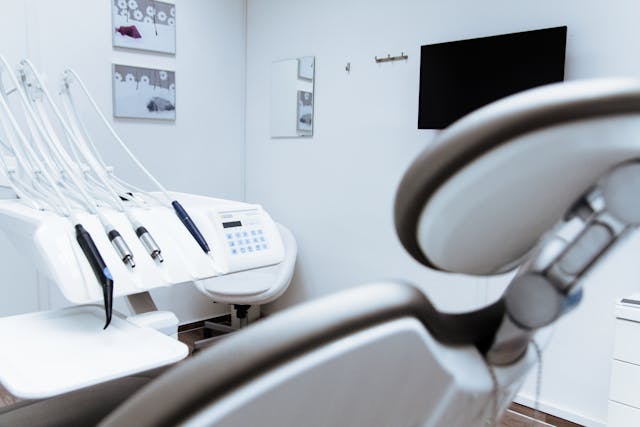Business
Be Prepared, Not Scared: Essential Tips For Handling A Dental Emergency

Dental crises can occur at any time, surprising people and causing anxiety. Nonetheless, maintaining oral health and reducing discomfort can be greatly improved by being ready and understanding how to respond in such circumstances. This article will go over some crucial advice for handling dental crises so you can handle them with poise and confidence.
Table of Contents
Recognizing Dental Emergencies
It is the first step in being prepared to have an understanding of what constitutes a dental emergency. Serious toothaches and shattered teeth are examples of emergencies. Other examples include knocked-out teeth or injury to tissues. For the purpose of providing timely and suitable responses, it is essential to differentiate between ordinary dental concerns and dental emergencies. It is possible to cause irreversible damage, infection, or exacerbation of discomfort if you ignore a dental emergency.
Stay Calm And Assess The Situation
When confronted with a dental emergency, it is normal to experience feelings of being overwhelmed. It is crucial, for efficient management to keep a calm manner at all times. Remain cool and take a minute to evaluate the current circumstance. In the event that there is bleeding, it is recommended to use clean gauze to apply pressure to the affected area and to rinse the mouth with warm water before applying pressure. In the event that a tooth is knocked out, it is important to handle it gently by the crown and to avoid contacting the root. Maintaining composure enables one to think more clearly and make better decisions that are more effective.
Contact Emergency Dental Services
You must act quickly in the event that you experience a dental emergency. Getting in touch with emergency dental in Chicago or those in your local vicinity can make can help saving your teeth. You could look for a dental facility, or you might ask your regular dentist for specific instructions. In cases that require rapid attention, such as acute pain, swelling, or trauma, it is essential to seek the professional’s assistance as soon as possible to ensure prompt intervention and optimal results.
Managing Pain And Discomfort
Pain and suffering are typically experienced in varied degrees during dental emergencies. Ibuprofen and other over-the-counter painkillers can help reduce discomfort momentarily until medical attention arrives. Aspirin might irritate the gums, so avoid putting it directly on them. In order to lessen swelling and numb discomfort, the affected area can also benefit from applying a cold compress. To avoid frostbite, though, never apply ice straight to the skin.
Protecting Knocked-Out Teeth
A knocked-out tooth requires immediate attention to improve the chances of successful re-implantation. In the event that a permanent tooth is knocked out, handle it cautiously by the crown and keep the root out of your hands. If it’s unclean, gently rinse it with water; do not scrub or remove any tissue bits that can be attached. Try to put the tooth back into its socket if you can, making sure it faces the proper direction. In the event that reinsertion is not possible, keep the tooth wet in a container of milk or saliva until you can get to a dentist.
Addressing Broken Or Chipped Teeth
Dental crises involving broken or chipped teeth are prevalent and are frequently the consequence of trauma or accidents. If a tooth is broken, use a cold compress to minimize swelling and clean the affected region by rinsing the mouth with warm water. Any broken teeth should be saved if at all feasible, as a dentist might be able to repair them. To stop additional damage, refrain from chewing on tough or sticky foods. Seek professional dental care as soon as you can to identify the degree of the injury and the best course of action.
Conclusion
Understanding how to identify and handle dental crises is part of being ready for them. Individuals can confidently navigate dental crises and reduce potential problems by remaining composed, getting immediate expert assistance, and taking the necessary precautions to control discomfort and protect injured teeth. To get the best possible results for your oral health and wellbeing, always remember that being prepared and knowledgeable is essential.

-

 Business3 years ago
Business3 years agoHow to Do Long-Distance Moves with Children
-

 Travel2 years ago
Travel2 years agoQuick Guide: Moving To Santa Rosa?
-

 Real Estate3 years ago
Real Estate3 years agoWhy Dubai Festival City is a Great Neighbourhood for Young Learners
-

 Business3 years ago
Business3 years agoIs Guest Posting a Good Inbound Marketing Strategy?
-

 Business1 year ago
Business1 year agoThe Ultimate Guide To Thriving In Your Printing Franchise
-

 Business1 year ago
Business1 year agoExploring The Benefits And Challenges Of Restaurant Franchising
-

 Tech3 years ago
Tech3 years agoCyber Table That Will Change Your Life
-

 Lifestyle1 year ago
Lifestyle1 year agoDallas’ Hidden Gems: 6 Must-Try Restaurants Off The Beaten Path!









Recent Comments